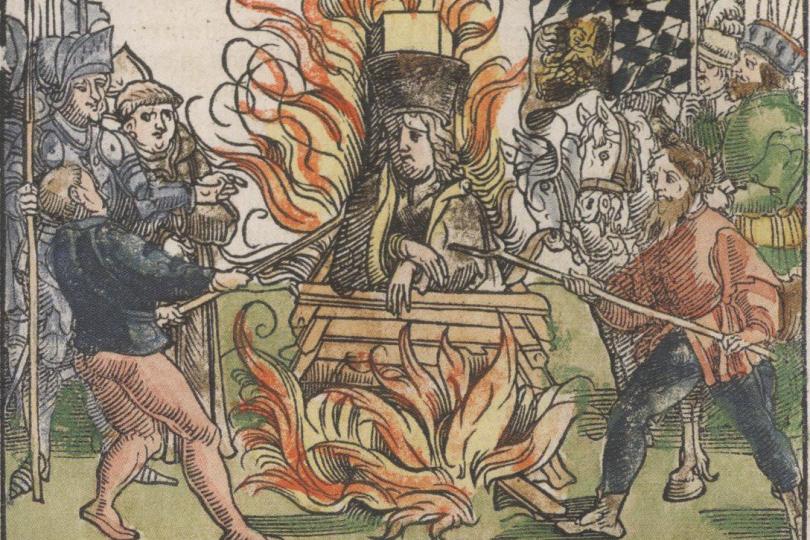Mikhail Boytsov Delivered a Report at Jan Gus Memorial Evening

On July 16 a memorial evening dedicated to the 600th anniversary of Jan Gus’ death took place at the Collegium Carolinum Research Institute for the History of the Czech Lands and Slovakia. The event was organized with the support of the Czech Centre Munich and the Adalbert Stifter Association.
Hubertus Seibert from Ludwig Maximilian University of Munich gave the opening speech and then Arpine Maniero from Collegium Carolinum presented a website about Jan Gus, which contains historical research materials and documents, a comprehensive bibliography and other information. Jan Randák from the Charles University in Prague and Mikhail Boytsov from HSE presented reports on how the perception of Jan Hus in historical memory has evolved in Russia and the Czech Republic. The abstract of Professor Boytsov’s report was published on the aforementioned website. and a week later an article covering the report was published in the journal ‘Bohemia’.